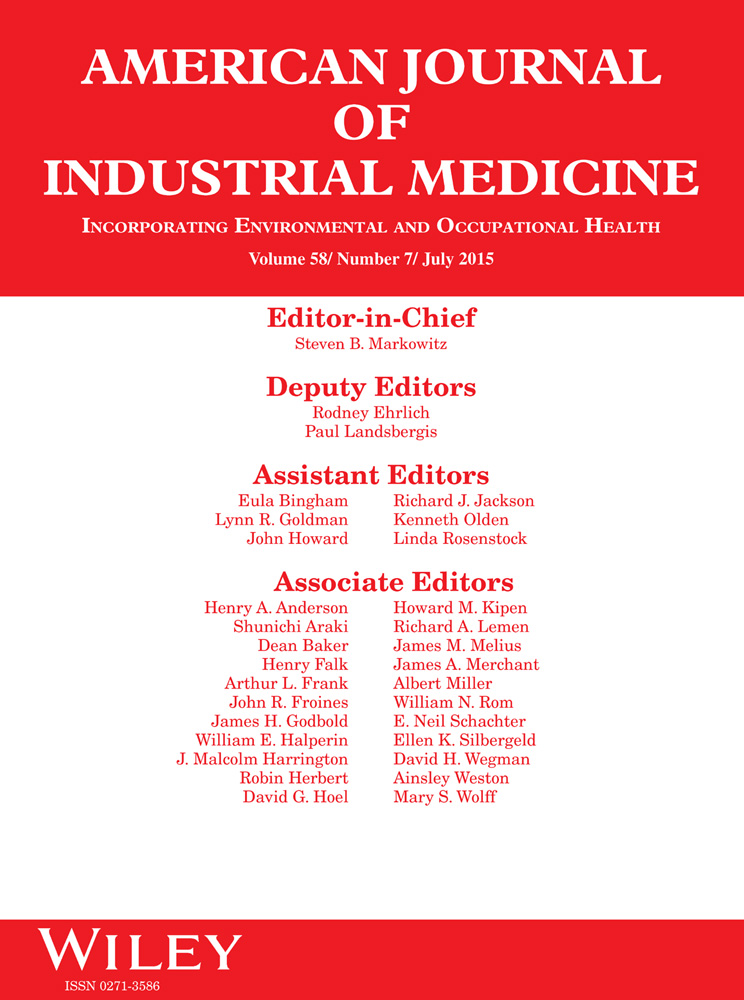High-sensitivity CRP: Possible link between job stress and atherosclerosis
Abstract
Background
Chronic inflammation may play an important role in linking job stress to atherosclerosis. We sought to investigate the relationship between job stress and high-sensitivity C-reactive protein (hs-CRP) among Chinese workers.
Methods
A total of 731 subjects (506 men and 225 women) were analyzed. Job stress was evaluated by effort-reward imbalance (ERI) model.
Results
Among men, after adjustment for confounders, effort, overcommitment, and ERI were significantly positively correlated with hs-CRP; and reward was significantly inversely related with hs-CRP; high level of effort, overcommitment, or ERI, respectively, significantly increased the odds of high hs-CRP with ORs of 2.0, 3.5, and 3.3 (all P < 0.001), compared with the corresponding low level groups. Among women, high overcommitment or ERI also increased risk of high hs-CRP with ORs of 2.8, and 4.1 (P < 0.05).
Conclusions
High effort, overcommmitment, and ERI were positively associated with hs-CRP. Inflammation indicated by hs-CRP may be one of important mediators linking job stress and atherosclerosis. Am. J. Ind. Med. 58:773–779, 2015. © 2015 Wiley Periodicals, Inc.




